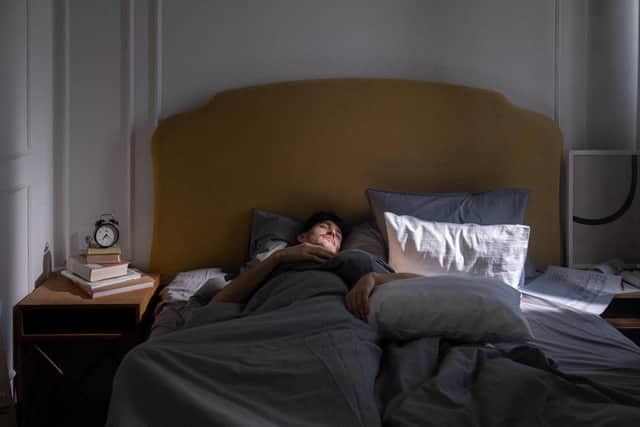Sunrise time Sheffield: When do the clocks go back and when do they go forward again
and live on Freeview channel 276
The nights are getting darker and colder, a sign that it will soon to be time to change your clocks to adhere to Daylight Saving Time.
In the UK, clocks go forward an hour on the last Sunday in March, and then go back an hour on the last Sunday in October.
Advertisement
Hide AdAdvertisement
Hide AdWith darker mornings and evenings at the moment, people across Sheffield have been left wondering what date the clocks will change and what time the sun is meant to rise and set as we move closer towards winter.


Here is everything you need to know.
When do the clocks go back in Sheffield?
In Sheffield and the rest of the UK, the clocks will go back by one hour at 2am on Sunday, October 31 – this weekend.
When the clocks go back in autumn, we move onto Greenwich Mean Time (GMT).
They last went forwards on March 28, which moved us into British Summer Time (BST).
Advertisement
Hide AdAdvertisement
Hide AdNext year, we will put the clocks forward an hour at 1am on March 27 – when the days are meant to begin getting lighter – and we’ll put them back again on October 30.
What is the sunrise time in Sheffield and when does the sun set?
You may have noticed it is much darker in the morning when you wake up now than it was a few weeks ago, as we are heading further into autumn and towards winter.
Currently the sun rises between 7.50am and 8am, meaning it is still very dark when most people wake up for work. It rises two minutes later every day this week, before rising at its latest time of the year so far on Saturday (8am).
However, when the clocks change on Sunday morning, the sun will rise at 7.02am, giving us almost a whole extra hour of sunlight in the morning.
Advertisement
Hide AdAdvertisement
Hide AdThis will change quickly though, with the sun rise time getting later and later through the week.
The bad news is that although it will be lighter much earlier, it will also get darker a lot earlier into the evening than it currently does.
On Sunday the sun will set at 4.46pm – a whole hour and two minutes earlier than the day before – and this trend will continue throughout the week.
Why do we change the clocks twice a year?
British Summer Time (BST), also known as Daylight Saving Time, was initially designed to help people maximise their sunlight hours all throughout the year.
Advertisement
Hide AdAdvertisement
Hide AdIt was created following a campaign led by British builder, William Willett, in 1907, with the Summer Time Act of 1916. Willett wrote about his proposal in a pamphlet called The Waste of Daylight, which was published in 1907.
Willett (who is actually Coldplay frontman Chris Martin’s great-great-grandfather), proposed the idea to keep days longer in the summer so he could play golf for longer.
In the pamphlet, Willett wrote: “Nevertheless, standard time remains so fixed, that for nearly half the year the sun shines upon the land for several hours each day while we are asleep, and is rapidly nearing the horizon, having already passed its western limit, when we reach home after the work of the day is over.
“Under the most favourable circumstances, there then remains only a brief spell of declining daylight in which to spend the short period of leisure at our disposal.”
Advertisement
Hide AdAdvertisement
Hide AdThe new system was also thought to benefit more than just keen golfers. It was hoped that making the most of natural sunlight would conserve energy, which was essential during World War I when coal was limited.
After much lobbying, Willett’s idea was eventually introduced in the UK a year after his death, and just after Germany and Austria had introduced Daylight Saving Time.
